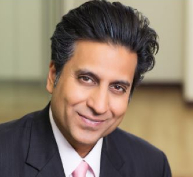“It is a COMPLIMENT, not a COMPLEMENT, Olga. There is a huge difference!” Read the email I received from the senior partner.
He included links to Webster’s Dictionary and a grammar article. Three other partners and two senior associates chimed in, and I was deluged with cheap jokes for a few days. I had the pleasure of being cc’d on several of these emails.
My sin? I found the winning case law, received extensive praise for my research, and hastily responded on my device with a lot of enthusiasm: “Thank you! I appreciate the complement.”
After I read the partner’s reply, I wanted to send him screenshots of a few other Webster’s entries, namely “pedantic” and “punctilious,” but, as I was a first-year associate, I decided that might not be the brightest idea. Having said that, it didn’t change my view on the obsession lawyers have with perfectionism.
Who cares about comas and gramma!?
Wait.
I guess, in some cases, it is important, but I just don’t see a need to put perfection up on a pedestal. If you think you have been deemed an “arbiter of truth,” then you are — rather ironically — living a lie. My nouns may not be professional or totally correct, but if people can choose their pronouns, I should be allowed to choose my normal nouns (mine might actually be less confusing).
Don’t get me wrong, I don’t mean anything’s wrong with exploring pronouns, but, as most people who study communication and linguistics will tell you: the bottom line of communication is not its rules, but its message. As long as the other person clearly understands what you were trying to say, you have successfully communicated!
So far, I’ve been talking about communication outside of a professional context. If your contracts are full of typos, then, yes, that presents a bad image of you and the company you work for. But, in a situation like mine, I don’t see a great necessity for perfection.
Perfection is like spelling; sometimes it’s fine to get close enough. I think lawyers have a slightly unhealthy obsession with impeccability. Nobody is perfect, so why put up a facade? Why pretend? In some cases, I would argue that demonstrating your human fallibility by making mistakes helps you and others. It eases tension while making you more relatable and even endearing. Everyone makes mistakes, and, in a healthy environment, people will be more comfortable with you because they can see that you’re imperfect, too, no different from them.
But finally, and, perhaps, most importantly:
Perfection is not my virtue, but rather, the substance of what I do and say measures my worth!
The crux of the matter should not be linguistic, but holistic. The weight of the content, the depth of the research, the strength of the proposition — all of these factors of writing are significantly more appropriate than whether there are any spelling mistakes or grammar errors here and there. As a lawyer, I studied a lot and picked up a lot of skills. After all, it’s a competitive industry, and you’re expected to deliver high-quality results. Lawyers deliver high value, while editing and proof-reading are comparatively low value compared to the substance itself. Not only that, but it can be automated with the likes of spellcheck or Grammarly.
I would much rather mess up an English clause than a legal one. If I spend time fretting about perfection, then I will never consistently attain adequacy. It’s hard to focus on the bigger picture when you must scrutinize everything through the lens of a microscope.
Don’t fake flawlessness or bow down to worship at its pedestal. Embrace imperfection but deliver substance. The worst trade-off would be sacrificing functionality for the sake of appearance.
 Olga V. Mack is the CEO of Parley Pro, a next-generation contract management company that has pioneered online negotiation technology. Olga embraces legal innovation and had dedicated her career to improving and shaping the future of law. She is convinced that the legal profession will emerge even stronger, more resilient, and more inclusive than before by embracing technology. Olga is also an award-winning general counsel, operations professional, startup advisor, public speaker, adjunct professor, and entrepreneur. She founded the Women Serve on Boards movement that advocates for women to participate on corporate boards of Fortune 500 companies. She authored Get on Board: Earning Your Ticket to a Corporate Board Seat and Fundamentals of Smart Contract Security. You can follow Olga on Twitter @olgavmack.
Olga V. Mack is the CEO of Parley Pro, a next-generation contract management company that has pioneered online negotiation technology. Olga embraces legal innovation and had dedicated her career to improving and shaping the future of law. She is convinced that the legal profession will emerge even stronger, more resilient, and more inclusive than before by embracing technology. Olga is also an award-winning general counsel, operations professional, startup advisor, public speaker, adjunct professor, and entrepreneur. She founded the Women Serve on Boards movement that advocates for women to participate on corporate boards of Fortune 500 companies. She authored Get on Board: Earning Your Ticket to a Corporate Board Seat and Fundamentals of Smart Contract Security. You can follow Olga on Twitter @olgavmack.









 Kathryn Rubino is a Senior Editor at Above the Law, and host of
Kathryn Rubino is a Senior Editor at Above the Law, and host of 


 Olga V. Mack is the CEO of
Olga V. Mack is the CEO of 





